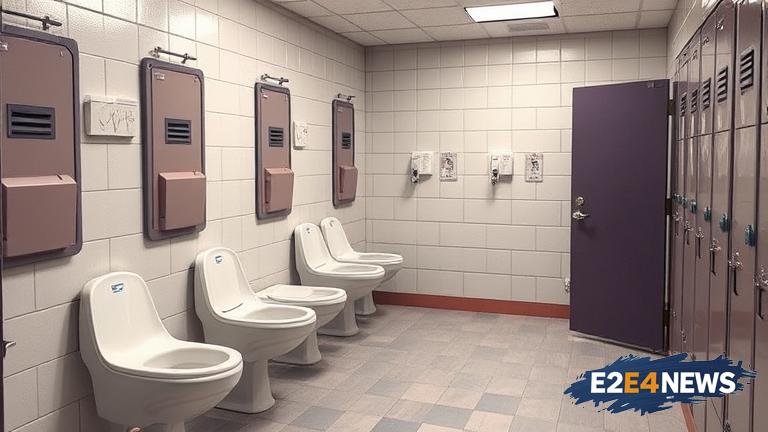The US Department of Education’s Office for Civil Rights has issued guidelines under Title IX, requiring schools to provide transgender and non-binary students with access to bathrooms and locker rooms that align with their gender identity. This move has sparked controversy in Virginia schools, with some arguing that it infringes upon the rights of other students. The guidelines, which were announced during the Trump administration, have been met with resistance from some school districts, including Loudoun and Prince William counties. However, other districts, such as Fairfax, Arlington, and Alexandria, have implemented policies that comply with the guidelines. The debate has centered around the issue of student safety and privacy, with some arguing that allowing transgender and non-binary students to use the bathrooms and locker rooms of their choice could lead to disruptions and potential safety risks. Others argue that denying these students access to facilities that align with their gender identity could lead to discrimination and harm. The Virginia Department of Education has issued its own guidelines, which recommend that schools provide transgender and non-binary students with access to bathrooms and locker rooms that align with their gender identity, while also ensuring the safety and privacy of all students. The guidelines also recommend that schools provide alternative facilities, such as single-stall bathrooms, for students who may feel uncomfortable using the bathrooms and locker rooms of their choice. The issue has been the subject of much debate and controversy, with some arguing that it is a matter of civil rights and others arguing that it is a matter of student safety and privacy. The US Department of Education has made it clear that it will enforce the guidelines, and schools that fail to comply could face penalties, including the loss of federal funding. The issue has also sparked debate at the state level, with some lawmakers arguing that the guidelines are an overreach of federal authority. Despite the controversy, many schools in Virginia have implemented policies that comply with the guidelines, and some have reported positive outcomes, including increased student safety and well-being. However, others have reported challenges, including resistance from some parents and students. The issue is likely to continue to be a topic of debate and controversy in the coming months and years, as schools and policymakers navigate the complex issues surrounding transgender and non-binary students’ access to bathrooms and locker rooms. The guidelines have also sparked debate at the national level, with some arguing that they are a necessary step towards ensuring the civil rights of transgender and non-binary students, while others argue that they are an overreach of federal authority. The issue has been the subject of much media attention, with many news outlets covering the debate and controversy surrounding the guidelines. The US Department of Education has made it clear that it will continue to enforce the guidelines, and schools that fail to comply could face penalties. The issue has also sparked debate among educators, with some arguing that the guidelines are necessary to ensure the safety and well-being of transgender and non-binary students, while others argue that they are an overreach of federal authority. The guidelines have also sparked debate among parents, with some arguing that they are necessary to ensure the safety and well-being of all students, while others argue that they are an overreach of federal authority. The issue is likely to continue to be a topic of debate and controversy in the coming months and years, as schools and policymakers navigate the complex issues surrounding transgender and non-binary students’ access to bathrooms and locker rooms. The US Department of Education has made it clear that it will continue to enforce the guidelines, and schools that fail to comply could face penalties, including the loss of federal funding. The guidelines have also sparked debate among lawmakers, with some arguing that they are a necessary step towards ensuring the civil rights of transgender and non-binary students, while others argue that they are an overreach of federal authority. The issue has been the subject of much debate and controversy, with some arguing that it is a matter of civil rights and others arguing that it is a matter of student safety and privacy. The US Department of Education has made it clear that it will enforce the guidelines, and schools that fail to comply could face penalties, including the loss of federal funding. The issue is likely to continue to be a topic of debate and controversy in the coming months and years, as schools and policymakers navigate the complex issues surrounding transgender and non-binary students’ access to bathrooms and locker rooms.
